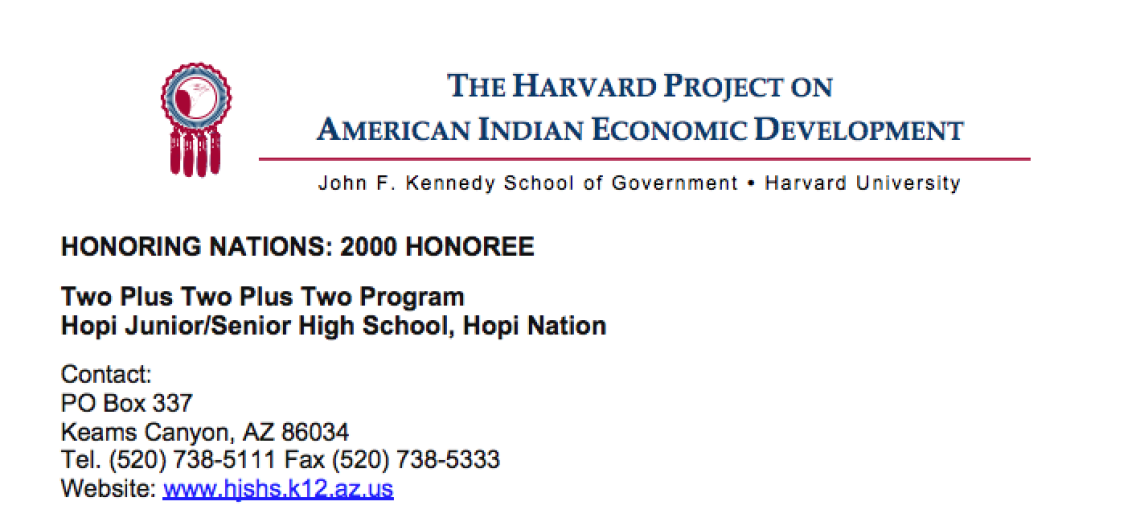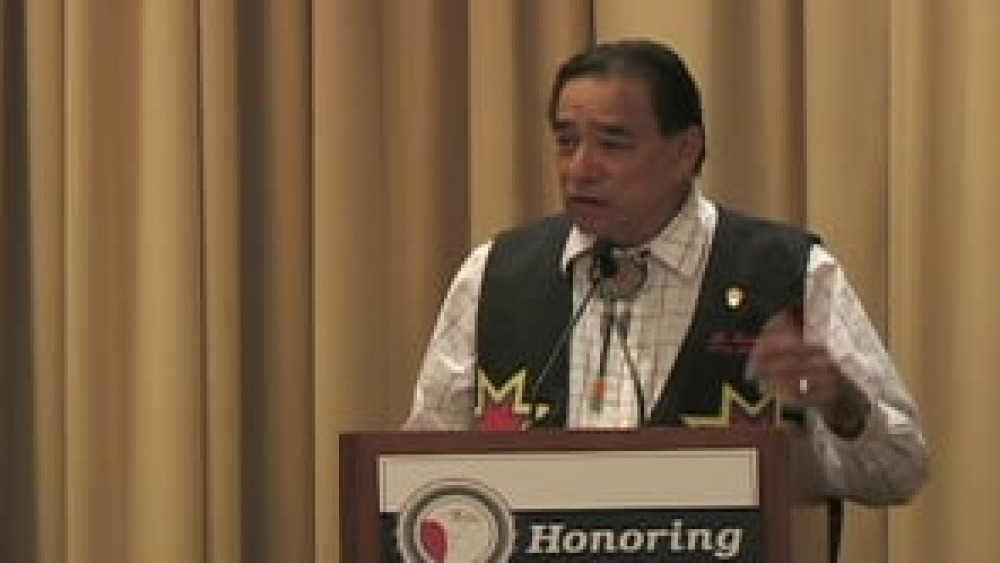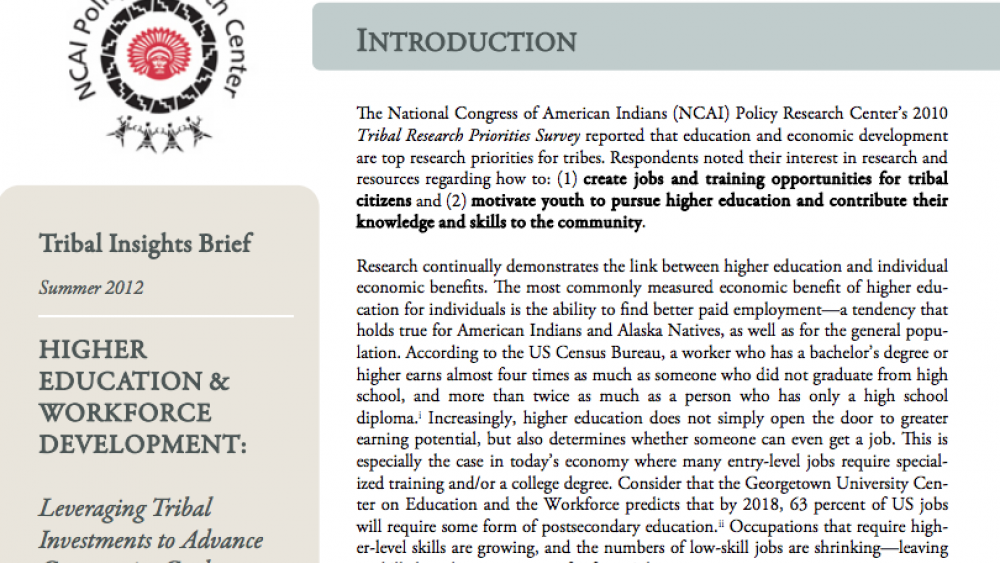Developed in 1997, the Two Plus Two Plus Two college transition program is a partnership between Hopi Junior/Senior High School, Northland Pioneer College, and Northern Arizona University. The program recruits junior and senior high school students to enroll in classes (including distance learning courses) that offer concurrent college level credits. Upon graduation, students enrolled in Two Plus Two Plus Two can earn up to thirty transferable credits to any state or out-of-state accredited community college or university. The Program has led to a growing demand for math and science courses by students within the school and to increased college enrollment. Two Plus Two Plus Two is helping Hopi students attain advanced educational degrees and, in so doing, is empowering them with technological and academic skills that they can bring back to the rural reservation.
Additional Information
"Hopi Jr./Sr. High: Two Plus Two Plus Two". Honoring Nations: 2000 Honoree. The Harvard Project on American Indian Economic Development, John F. Kennedy School of Government, Harvard University. Cambridge, Massachusetts. 2001. Report.



